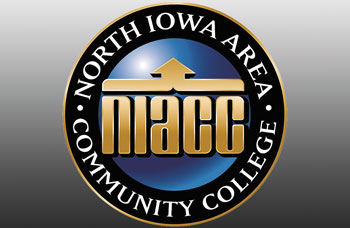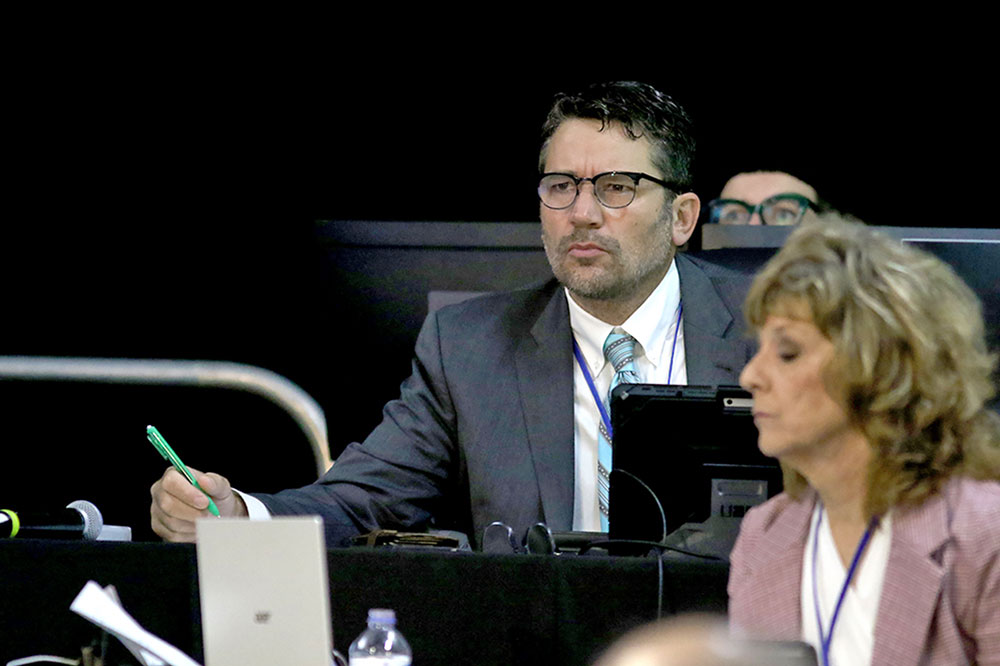City-county ambulance group likely to urge another 3-year AMR contract
By Bob Steenson, bsteenson@charlescitypress.com
Floyd County and the city of Charles City will probably receive recommendations to sign another three-year contract with AMR ambulance service, even through the price has more than doubled from the current contract.
The Floyd County Ambulance Commission discussed a potential new contract between the city and county and AMR ambulance service at the commission’s meeting this week. The commission is an advisory group that recommends to the city and county how to provide ambulance service.

Members of the Ambulance Commission are Floyd County Supervisor Jim Jorgensen, City Council member Keith Starr, Floyd County Medical Center (FCMC) CEO Dawnett Willis, FCMC Emergency Services Director Rachel Conrad, Charles City Police Chief and Director of Public Safety Hugh Anderson, Floyd County Sheriff Jeff Crooks and Charles City Fire Chief Marty Parcher.
The group urged Jorgensen, who is the commission chair, to ask the county supervisors to again begin the process of declaring emergency medical services (EMS) as an essential service in the county, similar to what law enforcement and fire protection are now.
That declaration could be the precursor to another referendum for county voters on whether to authorize collecting a new tax – property tax, income tax surtax or a combination of the two – to support EMS services.
Jorgensen said he would ask that the essential services declaration be put on the agenda for the Board of Supervisors meeting Monday, May 1. It would take a majority vote of that board to begin the process again.
That EMS levy is one of the few ways that has been identified to pay the costs of continuing service with AMR, or possibly starting a new public ambulance service.
The county went through the several-month process of declaring EMS an essential service last year, only to have an EMS tax referendum fail at the ballot box last November. The measure – to collect up to $556,000 per year for 10 years – needed a 60% supermajority to pass, but did not receive even a simple majority of yes votes across the county.
Because that referendum failed, the essential services designation is no longer valid, and the county would have to go through the entire process again before another vote could be taken.
The members of the commission spent some time talking about why the measure might have failed the first time it was put before the voters, and what they could do differently this time.
Patrick Lumley, a Charles City Council member who led an EMS advisory commission during last year’s referendum attempt, said the wording regarding the tax on the ballot was very difficult to understand, and should be made as simple as possible within Iowa Code requirements.
One of the things Ambulance Commission members stressed at the meeting was providing information about the need for a tax levy earlier and more continually before a referendum.
Chief Anderson said one key was having a simple message, referring to a campaign in another community where the slogan was “Vote Yes for EMS” – something that easily fit on a yard sign.
Members also talked about the timing of a potential referendum, and trying to avoid competing with a vote on the high school renovation bond referendum, and whether it would increase the chances of a referendum passing to have the issue on a general election ballot, as it was last November, or to put it on a special election where it is the only issue being decided.
They also noted that the county could go through the process of declaring EMS an essential service, but it wouldn’t have to schedule another referendum immediately.
Once the essential services declaration is made it can stay in effect indefinitely, and a EMS tax levy referendum can be held any time. The essential services declaration is only nullified by a failed referendum vote, according to Iowa Code.
Much of the time during the ambulance commission meeting this week was spent discussing a new contract with AMR that the ambulance service had provided.
The commission and other public bodies involved in securing ambulance service for the county keep coming back to the possibility of starting a new public ambulance service in the county that would take the place of AMR, but they also acknowledge that a county-passed EMS levy is likely needed to support it, and that passing such a levy and then setting up an ambulance service will likely take at least a couple of years.
AMR is the only choice for service that has been found in the interim.
The current three-year contract with AMR expires June 30. In this final year of that contract, Floyd County and Charles City are each paying $100,000 – a total of $200,000 – to AMR to subsidize the cost of service.
In the new contract. AMR is asking for $415,000 the first year, then increasing 3% each of the next two years, to $427,450, then $440,273.50.
The company has offered to defer payment of $100,000 the first year, making the total cost $315,000 the first year, but that $100,000 would be added to the payments for years two and three.
At the meeting, Floyd County Medical Center CEO Willis told the other members of the commission that the FCMC Board of Trustees had agreed to pay $100,000 toward the first year of a new AMR contract, but “the trustees don’t feel they can commit to support in perpetuity,” she said.
State Code allows county hospitals such as the medical center to levy property taxes specifically for ambulance service, but Willis said it is unclear if that could be levied this year since the medical center’s budget has already been approved, and also whether the levy can be used to support existing service or only to create a new service.
She said they reached out to their attorney to help answer some of those questions, but, “for now we’re using our operating funds to do this.”
With the medical center’s $100,000 and AMR’s $100,000 first-year deferment, the city and county would split $215,000 in the first year of the contract – $107,500 each, or just a little more than the $100,000 each they paid in the third year of the expiring contract.
Without another contribution from the medical center, and beginning to repay the deferral, the second-year payment would be $477,450 ($238,725 each) and the third-year payment would be $490,273.50 ($245,136,75 each).
Commission members had several questions regarding the proposed AMR contract, including what the cost would be to terminate the contract early. The proposed language says the contract cen be terminated with 180 days notice by either party, and talks about damages, but does not include specific figures.
The commission agreed to have the city attorney and the county attorney look over the contracts, to seek clarification on termination costs, and to also ask AMR for more specific financial information regarding its operating costs and revenue.








Social Share